Serverless API gateways are crucial for managing, securing, and scaling APIs in modern application architectures. This article compares the top tools in this space:
Key Takeaways
- Amazon API Gateway - Fully managed service by AWS, supports various backend integrations, offers low latency, and provides flexible security controls.
- Azure API Management - Robust features, extensive documentation and support, wide range of integrations, supports hybrid and multi-cloud environments.
- Google Cloud API Gateway - Scalable and secure, supports multiple protocols and API types, integrates with Google Cloud services, offers a free tier.
- Kong Gateway - Highly customizable and extensible, supports multiple API types, built-in security features, open-source and community-driven.
- Tyk API Gateway - Robust support for GraphQL, supports multiple API types, built-in security features, free tier, scalable and performant.
Quick Comparison
| Tool | Managed Service | Integration Support | Performance | Customization | Community and Support |
|---|---|---|---|---|---|
| Amazon API Gateway | ✅ | ✅ | ✅ | ✅ | ✅ |
| Azure API Management | ✅ | ✅ | ✅ | ✅ | ✅ |
| Google Cloud API Gateway | ✅ | ✅ | ✅ | ✅ | ✅ |
| Kong Gateway | ✅ | ✅ | ✅ | ✅ | ✅ |
| Tyk API Gateway | ✅ | ✅ | ✅ | ✅ | ✅ |
When choosing a serverless API gateway, consider your project's scalability needs, customization requirements, existing infrastructure, security requirements, and cost implications.
Serverless API Gateways Explained
A serverless API gateway is the entry point for all API calls from clients to backend services. It plays a critical role in managing, securing, and routing API requests.
Key Features of Serverless API Gateways
| Feature | Description |
|---|---|
| Request Authentication | Verifies the identity of clients making API requests |
| Rate Limiting | Controls the number of API requests from clients |
| Caching | Stores frequently accessed data to reduce latency |
| Logging | Tracks API requests and responses for auditing and debugging |
| Request/Response Transformation | Modifies API requests and responses to meet specific requirements |
Serverless API gateways simplify API management, enhance security, and improve scalability and performance of distributed applications. By offloading security concerns to the API Gateway, developers can focus on implementing application-specific logic.
In a serverless architecture, API gateways tie together serverless functions and API definitions, enabling a truly serverless architecture for web applications. This allows developers to build fully functional customer-facing web applications without maintaining a single server themselves.
By using a serverless API gateway, developers can:
- Focus on application logic: Offload security and scalability concerns to the API Gateway
- Improve scalability: Automatically scale to accommodate fluctuations in demand
- Enhance security: Implement robust security features without added complexity
1. Amazon API Gateway
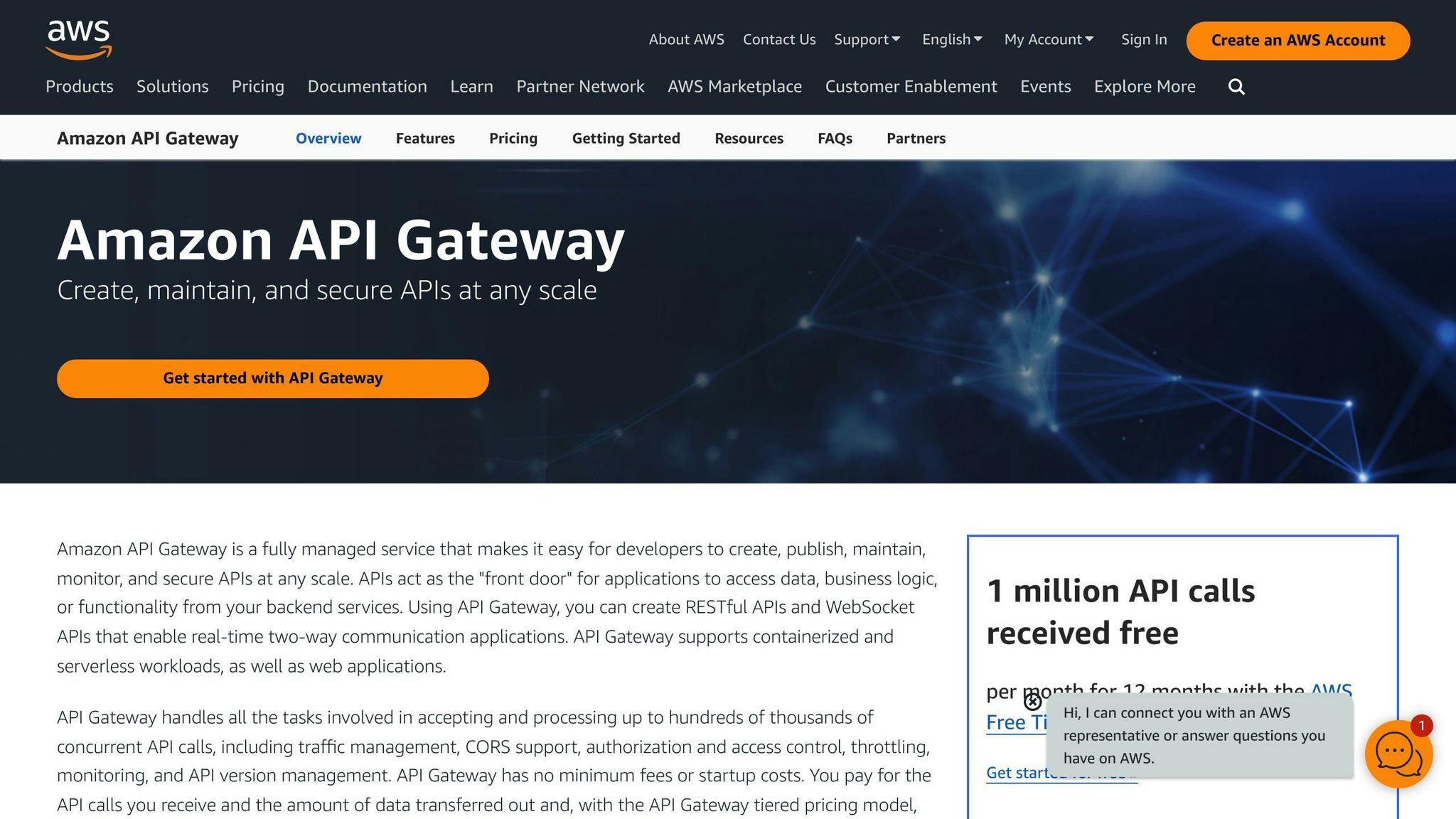
Managed Service
Amazon API Gateway is a fully managed service that allows developers to create, publish, maintain, monitor, and secure APIs at any scale. It handles tasks such as traffic management, CORS support, authorization, throttling, monitoring, caching, and API version management.
Integration Support
API Gateway supports various backend integrations, including:
| Integration Type | Description |
|---|---|
| Containerized | Supports containerized workloads |
| Serverless | Supports serverless functions, such as AWS Lambda |
| Traditional | Supports traditional instance-based workloads |
| HTTP Endpoints | Supports HTTP endpoints through Elastic Beanstalk, ELB, or EC2 servers |
| Non-AWS Hosted | Supports non-AWS hosted HTTP-based operations accessible via the public Internet |
Performance
API Gateway provides low latency API requests, thanks to its network of edge locations. This makes it highly scalable, allowing it to process up to hundreds of thousands of concurrent API calls. The tiered pricing model also reduces costs as API usage increases.
Customization
API Gateway offers:
- Flexible security controls
- Monitoring capabilities
- Choice between HTTP APIs and REST APIs
- Support for WebSocket APIs, enabling real-time, two-way communication applications with a persistent connection
Community and Support
Amazon API Gateway has a large community of developers and users, with extensive documentation and support resources available. It is also integrated with other AWS services, making it easy to use with existing AWS infrastructure.
2. Azure API Management
Managed Service
Azure API Management is a fully managed service that helps developers securely expose their APIs to external and internal customers. It provides tools and services for creating, publishing, and managing APIs, as well as enforcing security, scaling, and monitoring API usage.
Integration Support
Azure API Management supports various backend integrations, including:
| Integration Type | Description |
|---|---|
| Azure | Integrates with Azure services |
| Other Clouds | Integrates with other cloud providers |
| On-Premises | Integrates with on-premises systems |
It enables developers to decouple front- and back-end teams through API mocking, revisions, and versioning.
Performance
Azure API Management optimizes API traffic flow, ensures compliance with security requirements, and delivers visibility across all internal and external APIs. It also provides automatic API documentation, making it easier for teams to keep track of their development progress and usage.
Customization
Azure API Management offers:
- Customizable Developer Portals: Improved API discoverability
- API Transformation: Transforms legacy web services into modern REST-based APIs
- Security Features: Authentication, authorization, and usage limits to control access to data and services
Community and Support
Azure API Management has a large community of developers and users, with extensive documentation and support resources available. It is also integrated with other Azure services, making it easy to use with existing Azure infrastructure.
3. Google Cloud API Gateway
Managed Service
Google Cloud API Gateway is a fully managed service that helps developers create, secure, and monitor APIs for Google Cloud serverless back ends, including Cloud Functions, Cloud Run, and App Engine. Built on the Envoy platform, API Gateway provides high performance and scalability.
Integration Support
API Gateway supports integration with serverless platforms like:
| Platform | Description |
|---|---|
| Cloud Functions | Supports serverless functions |
| Cloud Run | Supports containerized workloads |
| App Engine | Supports web applications |
Performance
API Gateway simplifies API management for both internal and external use, ensuring consistency and user-friendliness. The platform's built-in security mechanisms, such as authentication and key validation, protect published services. Admins can also monitor API performance through logging, tracing, and monitoring services.
Customization
API Gateway offers a fully managed gateway for serverless workloads, allowing users to create, secure, and monitor APIs for Google Cloud serverless back ends. The consumption-based and tiered pricing model helps users manage costs effectively.
Community and Support
Google Cloud API Gateway has extensive documentation and support resources available, making it easy for developers to get started and manage their APIs effectively.
4. Kong Gateway
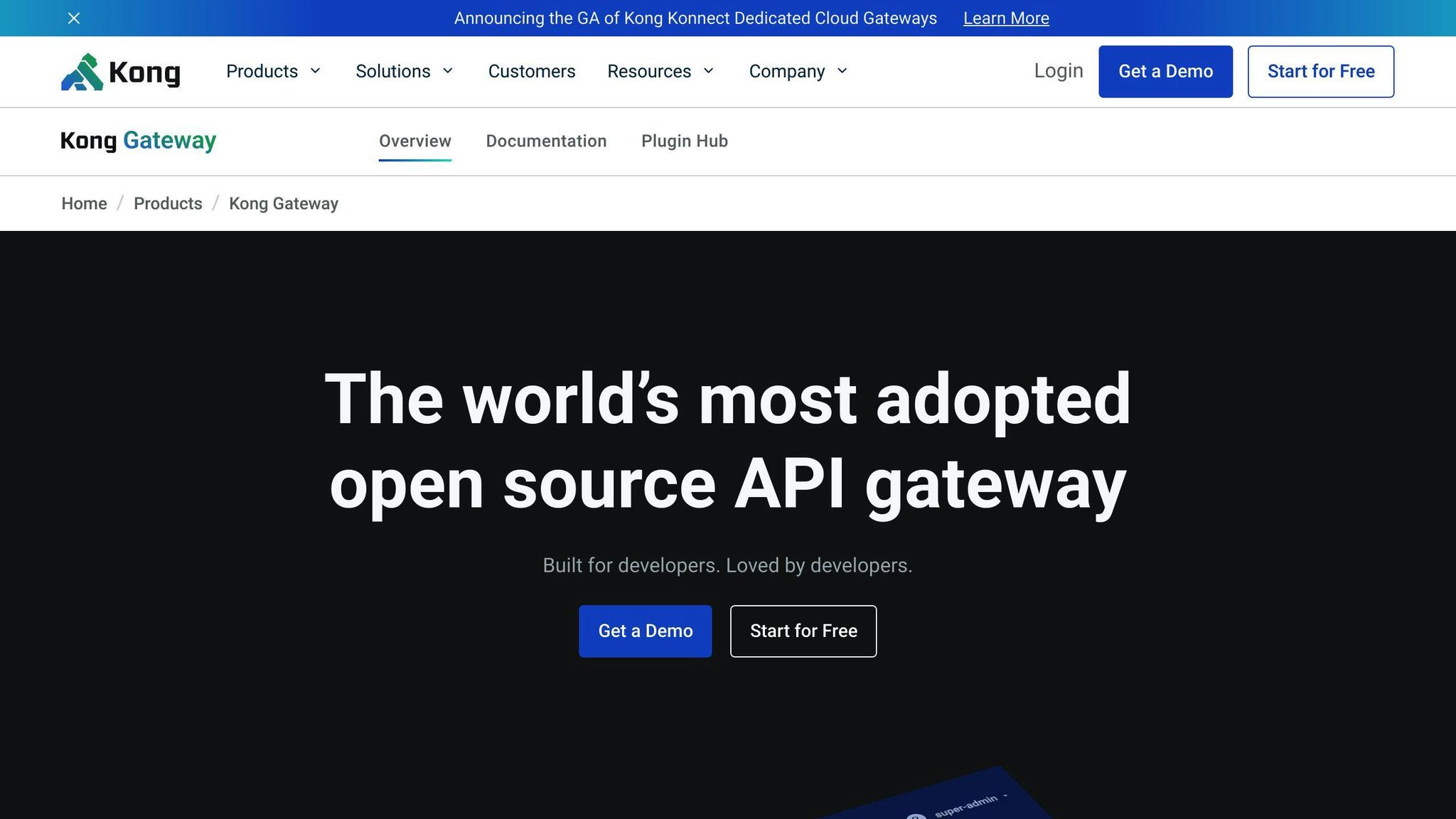
Managed Service
Kong Gateway is a lightweight, flexible API gateway designed for developers. It's built on open-source technology and powered by an ultra-lightweight NGINX engine, handling over 50,000 transactions per second per node.
Integration Support
Kong Gateway supports various deployment options and can operate across different environments, platforms, and implementation patterns. It comes with a range of out-of-the-box security, authentication, transformation, and analytics plugins, allowing for granular control over API traffic.
Performance
Kong Gateway is optimized for microservices and distributed architectures, making it suitable for hybrid and multi-cloud environments. It supports end-to-end automation of the API and microservices lifecycle through declarative configuration.
Customization
Kong Gateway offers a range of features for managing and securing APIs, including:
| Feature | Description |
|---|---|
| API Gateway | Handles API traffic and routing |
| Plugins | Provides security, authentication, transformation, and analytics capabilities |
| Load Balancing | Distributes API traffic across multiple nodes |
| Analytics | Offers insights into API performance and usage |
Custom plugins can also be developed using Kong's Plugin Development Kit.
Community and Support
Kong Gateway has a large developer community and provides access to shared resources, knowledge, and best practices for building and deploying APIs. Its open-source nature ensures that users can leverage the collective expertise of the community to overcome any challenges they may face.
sbb-itb-258b062
5. Tyk API Gateway
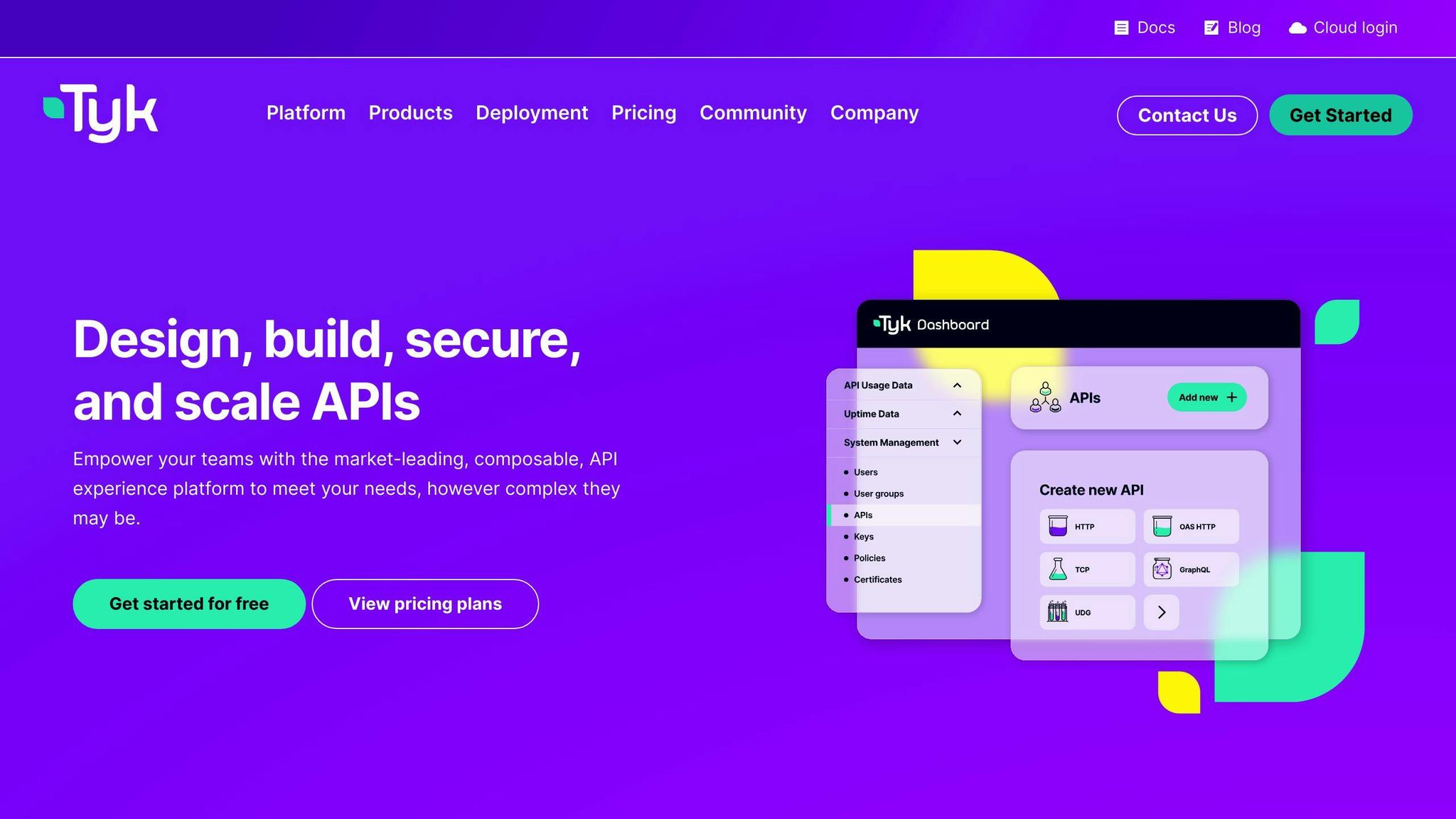
Managed Service
Tyk API Gateway is an open-source, lightweight API gateway written in Go. It offers a managed service that allows users to securely publish and manage various services, including legacy, REST, and GraphQL.
Integration Support
Tyk API Gateway supports multiple deployment options and can operate across different environments, platforms, and implementation patterns. It comes with a range of out-of-the-box security, authentication, transformation, and analytics plugins.
Performance
Tyk API Gateway is optimized for microservices and distributed architectures, making it suitable for hybrid and multi-cloud environments. It supports end-to-end automation of the API and microservices lifecycle through declarative configuration.
Customization
Tyk API Gateway offers the following features for managing and securing APIs:
| Feature | Description |
|---|---|
| API Gateway | Handles API traffic and routing |
| Plugins | Provides security, authentication, transformation, and analytics capabilities |
| Load Balancing | Distributes API traffic across multiple nodes |
| Analytics | Offers insights into API performance and usage |
Custom plugins can also be developed using Tyk's Plugin Development Kit.
Community and Support
Tyk API Gateway has a large developer community and provides access to shared resources, knowledge, and best practices for building and deploying APIs. Its open-source nature ensures that users can leverage the collective expertise of the community to overcome any challenges they may face.
Comparing the Tools
In this section, we'll evaluate each tool based on specific criteria. The comparison table below provides a side-by-side evaluation of how each tool measures up against the criteria.
| Tool | Managed Service | Integration Support | Performance | Customization | Community and Support |
|---|---|---|---|---|---|
| Amazon API Gateway | ✅ | ✅ | ✅ | ✅ | ✅ |
| Azure API Management | ✅ | ✅ | ✅ | ✅ | ✅ |
| Google Cloud API Gateway | ✅ | ✅ | ✅ | ✅ | ✅ |
| Kong Gateway | ✅ | ✅ | ✅ | ✅ | ✅ |
| Tyk API Gateway | ✅ | ✅ | ✅ | ✅ | ✅ |
The table above highlights the key features of each tool, providing a concise overview of their capabilities. In the following sections, we'll delve deeper into the pros and cons of each tool, exploring their strengths and weaknesses in more detail.
Note: ✅ indicates that the tool supports the specified feature or criterion.
By comparing these tools, you'll be able to make an informed decision about which one best fits your project's needs.
Pros and Cons
In this section, we'll explore the advantages and disadvantages of each tool, providing a concise summary to help readers make an informed decision based on their specific needs.
Amazon API Gateway
| Pros | Cons |
|---|---|
| Easy to set up and use | Limited customization options |
| Integrates with other AWS services | Can have slower performance |
| Flexible pricing options | |
| Supports different types of APIs | |
| Built-in caching and monitoring |
Azure API Management
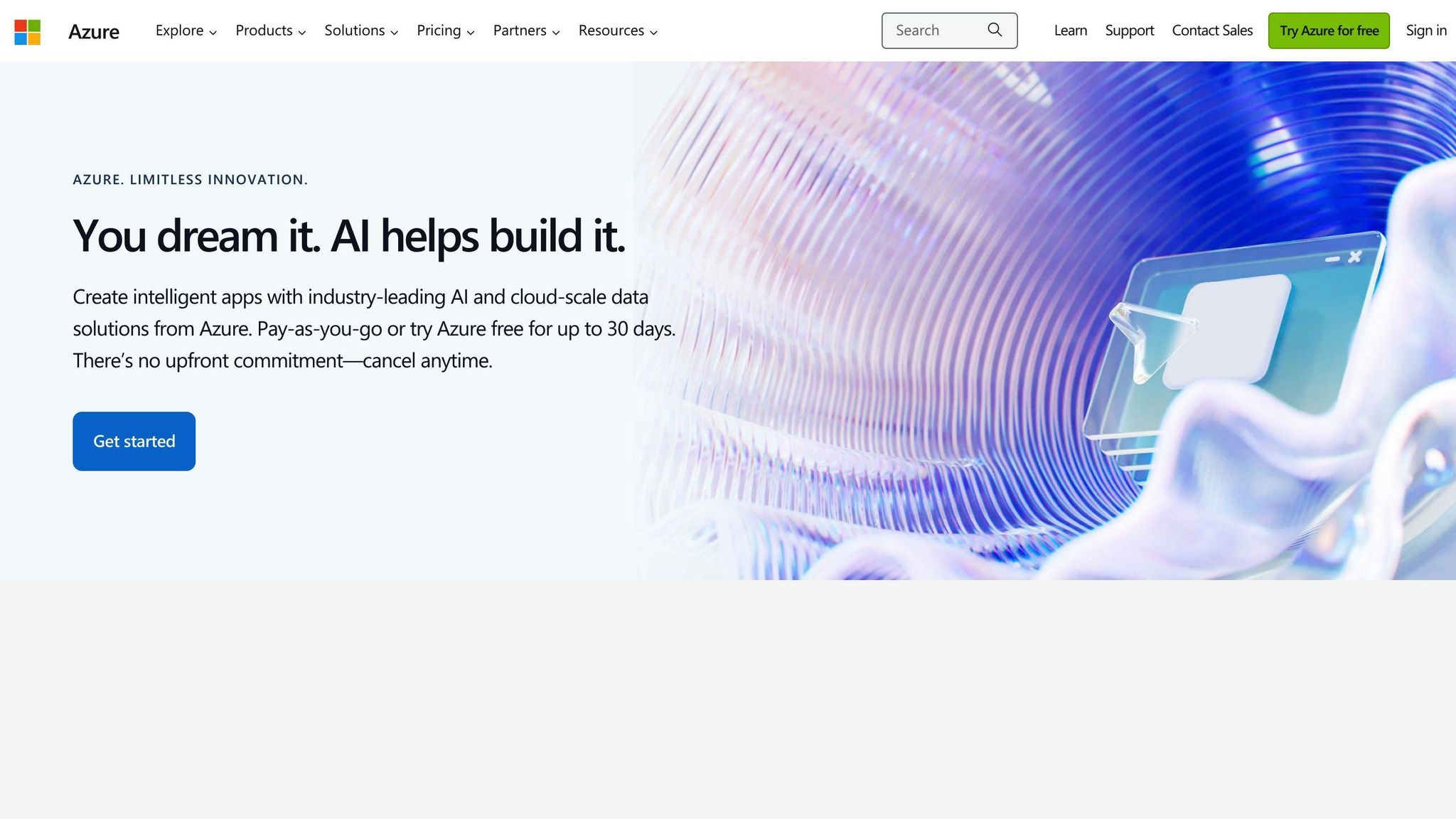
| Pros | Cons |
|---|---|
| Robust features and capabilities | Can be expensive for large-scale usage |
| Extensive documentation and support | Requires technical expertise |
| Wide range of integrations and plugins | Can have slower performance |
| Supports hybrid and multi-cloud environments | |
| Strong security and compliance features |
Google Cloud API Gateway
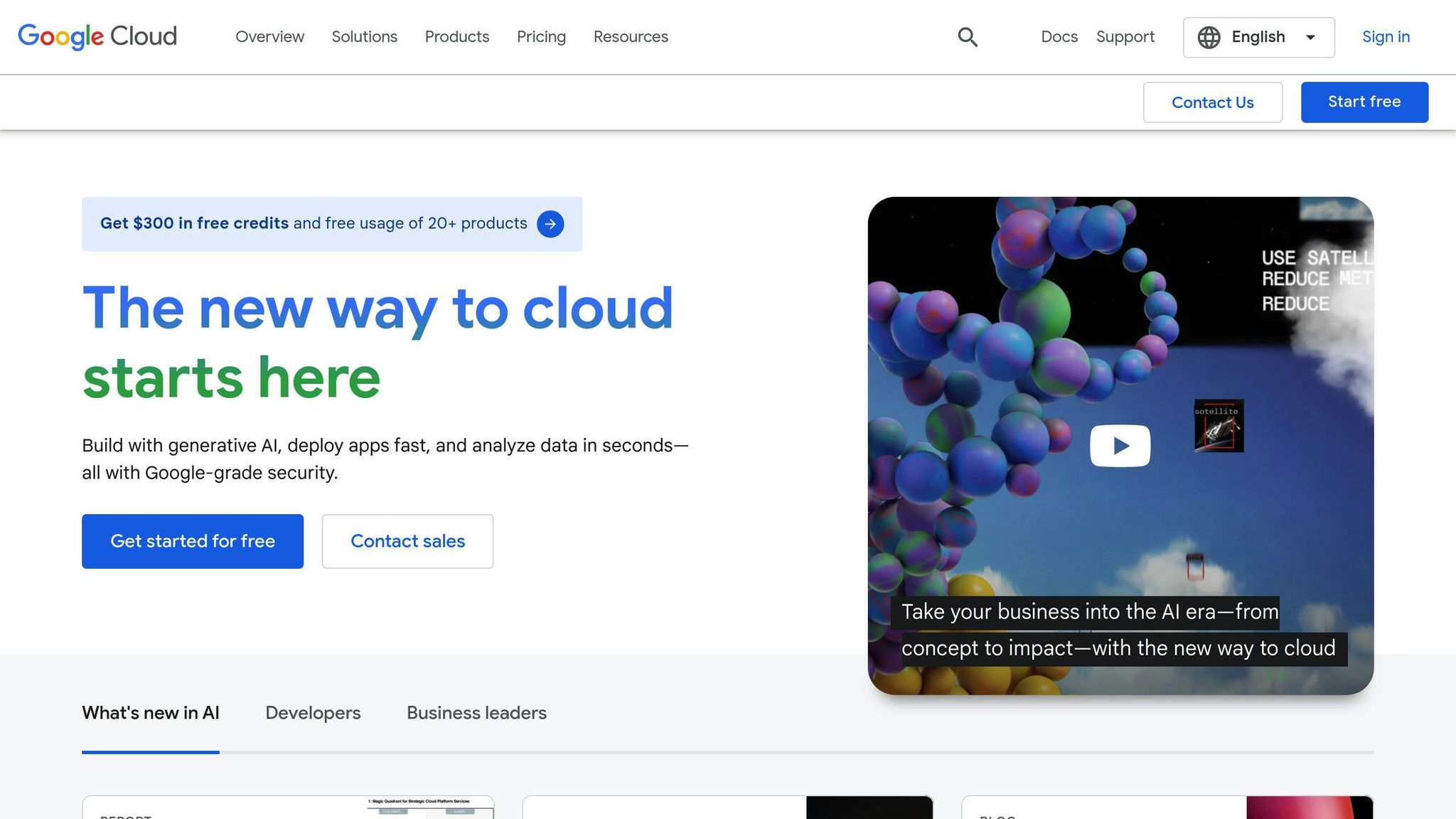
| Pros | Cons |
|---|---|
| Scalable and secure | Limited customization options |
| Supports multiple protocols and API types | Can have slower performance |
| Integrates with other Google Cloud services | Limited support for non-Google Cloud services |
| Free tier with limited requests | |
| Supports serverless backend services |
Kong Gateway
| Pros | Cons |
|---|---|
| Highly customizable and extensible | Requires technical expertise |
| Supports multiple types of APIs | Can have slower performance |
| Built-in security features | Limited support for non-NGINX services |
| Open-source and community-driven | |
| Scalable and performant |
Tyk API Gateway
| Pros | Cons |
|---|---|
| Robust support for GraphQL | Limited customization options |
| Supports multiple types of APIs | Can have slower performance |
| Built-in security features | Limited support for non-GraphQL services |
| Free tier with limited requests | |
| Scalable and performant |
By understanding the pros and cons of each tool, you'll be able to make an informed decision about which one best fits your project's needs.
Final Thoughts
When choosing a serverless API gateway, it's crucial to consider your project's specific needs and requirements. Each tool has its strengths and weaknesses, and the right choice depends on your scalability needs, customization requirements, and existing infrastructure.
Key Factors to Consider
| Factor | Description |
|---|---|
| Scalability | Can the API gateway handle sudden spikes in traffic or large volumes of requests? |
| Customization | How much flexibility do you need to tailor the API gateway to your specific use case? |
| Integration | Does the API gateway seamlessly integrate with your existing infrastructure and services? |
| Security | What built-in security features does the API gateway offer to protect your APIs from unauthorized access and attacks? |
| Cost | What are the pricing models and cost implications of using the API gateway? |
Choosing the Right API Gateway
If you're already invested in the AWS ecosystem, Amazon API Gateway might be the most natural choice. However, if you're looking for a more flexible and customizable solution, Kong Gateway or Tyk API Gateway could be a better fit. Azure API Management, on the other hand, offers robust features and capabilities, making it an excellent option for large-scale enterprises.
Remember, the API economy is rapidly evolving, and the demand for robust API gateways will only continue to grow. By carefully evaluating the key factors and considering your unique requirements, you'll be able to choose the serverless API gateway that best fits your needs and sets your project up for success.
FAQs
What is the most widely used API gateway?
The top API gateways are:
| Rank | API Gateway |
|---|---|
| 1 | Amazon API Gateway |
| 2 | Azure API Management |
| 3 | Boomi API Management |
| 4 | Google API Gateway |
| 5 | IBM API Connect |
| 6 | Kong Gateway |
| 7 | MuleSoft Anypoint Flex Gateway |
| 8 | WSO2 API Manager |
These API gateways are popular due to their robust features, scalability, and seamless integration with various infrastructure and services. However, the most widely used API gateway can vary depending on the specific needs and requirements of a project or organization.
